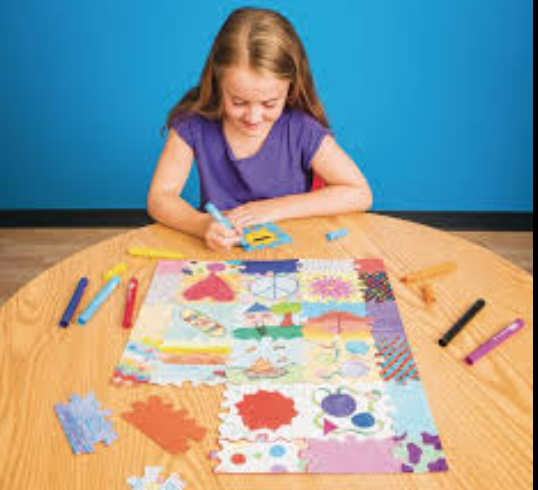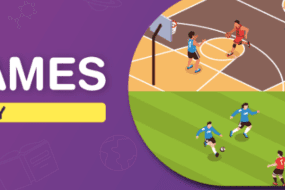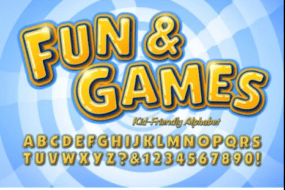
In every culture, age group, and corner of the globe, fun and games are a fundamental part of the human experience. From the quiet challenge of a jigsaw puzzle to the adrenaline rush of a competitive sport, games have the power to connect people, improve mental and physical health, and bring joy in countless forms. This expansive world of recreation is as diverse as it is meaningful, with each game or activity offering something unique.
Whether you’re seeking mental stimulation, physical prowess, social interaction, or just a good laugh, the world of fun and games is worth exploring. In this article, we’ll journey through various domains—puzzles, board games, digital gaming, sports, outdoor adventures, and more—highlighting how each contributes to our personal and communal well-being.
The Allure of Puzzles: Exercising the Mind
Puzzles represent one of the oldest and most intellectually stimulating forms of entertainment. From classic crosswords and Sudoku to intricate 1,000-piece jigsaws and modern escape room challenges, puzzles provide mental workouts that enhance cognitive function, memory, and problem-solving skills.
Why We Love Puzzles
At their core, puzzles offer a unique blend of frustration and satisfaction. The process of struggling through a challenge only to experience the “aha!” moment is incredibly rewarding. This mental stimulation is especially valuable as we age, helping to maintain brain health and potentially stave off cognitive decline.
Modern iterations like Rubik’s cubes, puzzle apps, and even augmented reality puzzle games have expanded the reach of this genre. They are not just for kids or casual hobbyists—puzzles are used in education, therapy, and even corporate training to build focus and critical thinking skills.
Board Games: The Power of Play in Social Settings
Before video games became ubiquitous, board games ruled the entertainment world. Classics like Monopoly, Scrabble, and Clue are still widely played, but the board game industry has seen a renaissance over the past two decades with the rise of modern strategy games like Catan, Ticket to Ride, and Carcassonne.
Building Bonds Over Boards
Board games bring people together. In a world dominated by screens, they offer a tactile, face-to-face interaction that fosters conversation, teamwork, and competition in a healthy, structured way. From casual party games like Codenames to deep strategy epics like Gloomhaven, there’s a board game for every personality and group dynamic.
The recent growth of board game cafés and online platforms like Tabletop Simulator further proves that this medium is not only alive but thriving. It also emphasizes the growing desire for more authentic social experiences.
Video Games: The Digital Evolution of Fun
Gaming has evolved dramatically from its arcade origins to become a multi-billion dollar industry influencing art, storytelling, and social interaction. Today’s video games span every genre imaginable—from relaxing simulations like Stardew Valley to intense multiplayer shooters like Call of Duty.
More Than Just Entertainment
Contrary to outdated stereotypes, video games are not just mindless entertainment. Research continues to show that gaming can improve hand-eye coordination, multitasking, and even empathy when designed thoughtfully. Educational games help children learn math, science, and language in engaging ways, while therapeutic games are used in treatments for anxiety, PTSD, and depression.
The growth of eSports has turned digital gaming into a spectator sport, with millions watching international tournaments and elite players earning professional salaries. Streaming platforms like Twitch and YouTube Gaming have further blurred the lines between entertainment, community, and competition.
Sports: Physicality Meets Passion
Few activities are as universally loved and emotionally charged as sports. Whether played recreationally or professionally, sports bring out our drive, discipline, and team spirit. From soccer and basketball to tennis, martial arts, and swimming, there is a sport for every body type and personality.
Health, Community, and Legacy
Engaging in sports isn’t just about physical fitness—though the benefits to heart health, muscle tone, and stamina are undeniable. It’s also about emotional health and belonging. Team sports teach cooperation, leadership, and resilience. Individual sports cultivate self-discipline, focus, and mental toughness.
Moreover, sports often carry deep cultural significance. The Olympics, the World Cup, Wimbledon—these are more than just tournaments. They are global celebrations of human ability and unity.
Even recreational sports leagues or neighborhood games have an important role in building community. Adults rediscover childlike joy, while kids develop important life skills—all while getting a good workout.
Outdoor Games and Activities: Rediscovering Nature
Amid the fast pace of modern life, outdoor play has become both a nostalgic memory and a necessary antidote to screen fatigue. Activities like tag, hide-and-seek, scavenger hunts, and frisbee remain beloved for their simplicity and spontaneity. Meanwhile, more structured outdoor pursuits like hiking, geocaching, and ultimate frisbee are growing in popularity.
The Call of the Wild
Playing outside is not just for kids. Studies show that time spent in nature reduces stress, boosts mood, and improves concentration. Outdoor games encourage movement, creativity, and connection—with each other and with the environment.
With the rise of eco-tourism and outdoor adventure travel, people are increasingly combining leisure with exploration. Ziplining in Costa Rica, sandboarding in the Sahara, kayaking in Patagonia—these are all expressions of play on a grand scale.
Even simple activities like flying a kite or climbing a tree can be powerful reminders of how much joy there is in the natural world.
Traditional Games: Cultural Gems
Every region has its traditional games that reflect its values, history, and social dynamics. From Africa’s mancala to India’s kabaddi, Korea’s yutnori to Brazil’s capoeira, traditional games are often overlooked treasures.
A Global Playground
Learning and playing traditional games helps preserve cultural heritage and fosters global awareness. These games can teach us much about a society—how they communicate, collaborate, compete, and celebrate.
Incorporating traditional games into classrooms or community events is a fantastic way to build multicultural appreciation while having fun. It also reminds us that while the mechanics may vary, the spirit of play is universal.
The Science of Play: Why It Matters
Play isn’t just a pastime—it’s a critical part of human development. According to psychologists like Jean Piaget and Lev Vygotsky, play is essential for learning, creativity, and social development.
Mental and Emotional Benefits
For children, play supports brain development, language acquisition, and emotional regulation. For adults, it reduces stress, combats burnout, and boosts problem-solving skills. Play can also strengthen relationships, improve communication, and even spark innovation.
Game-based learning and gamification are being used in classrooms, workplaces, and wellness programs to increase engagement and improve outcomes. By understanding and respecting the science of play, we can unlock its potential in all areas of life.
The Future of Fun: Where We’re Headed
As technology advances and societal needs evolve, so too does the world of games. Augmented reality (AR) and virtual reality (VR) are opening new frontiers in interactive play. Imagine battling dragons in your living room or solving mysteries in a virtual museum halfway across the globe.
Inclusive and Accessible Gaming
One exciting trend is the push toward inclusivity. Adaptive gaming tools, inclusive sports leagues, and neurodiverse-friendly board games are making sure everyone has a seat at the table—or a place on the field.
From AI-enhanced puzzles that evolve with your skill level to wellness apps that turn exercise into a game, the future of play is bright—and more accessible than ever.
As we face global challenges like isolation, stress, and sedentary lifestyles, fun and games aren’t a distraction—they’re a solution.
Conclusion: The Joy of the Game
From the solo meditation of solving a puzzle to the shared exhilaration of team sports, the world of fun and games is both vast and deeply personal. It unites mind and body, culture and community, past and future.
In a world that often feels divided and overwhelming, games remind us of something simple yet profound: the power of joy. Whether you’re rolling dice, scoring goals, solving riddles, or exploring virtual worlds, you are part of a global tradition that celebrates curiosity, connection, and play.
So pick up a ball, a board, a controller, or a puzzle piece—and play on.























